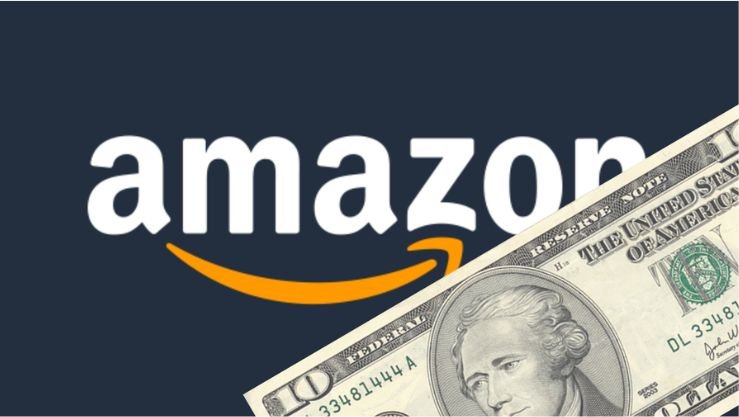Amazon’s affiliate program — called Amazon Associates — is one of the most popular affiliate marketing programs in the world. It’s beginner-friendly, has millions of products, and is easy to get started with. But how much do Amazon affiliate links actually pay? And is it worth your time?
If you’re just getting started with affiliate marketing, or you’re comparing options, this article breaks down exactly how the Amazon Associates program pays, which categories are the most profitable, how commissions work, and how to increase your income.
What Is the Amazon Associates Program?
Amazon Associates allows you to earn a commission by referring people to Amazon through special affiliate links. When someone clicks your link and makes a purchase (of anything, not just what you linked to), you earn a percentage of the sale.
It’s free to join. You can generate links to nearly any product on Amazon and start sharing them on your blog, website, YouTube channel, or social media.
How Do Amazon Affiliate Commissions Work?
Amazon uses a commission rate system based on product categories. You earn a percentage of the final sale price of any item your visitor buys within a 24-hour window after clicking your link.
That means if someone clicks your affiliate link and buys a product — or even something else entirely — within 24 hours, you get paid.
Here’s how it works:
-
You join the program and get approved
-
You get a custom link for any product
-
You share the link in your content
-
Someone clicks it and makes a purchase
-
You earn a commission on their total order
How Much Do Amazon Affiliate Links Pay by Category?
Amazon has different commission rates for different categories. These rates change from time to time, so it’s smart to check the current Amazon Associates commission schedule.
Here are some common commission rates (as of the latest data):
| Product Category | Commission Rate |
|---|---|
| Luxury Beauty | 10% |
| Amazon Coins | 10% |
| Furniture, Home, Garden, Tools | 8% |
| Headphones | 6% |
| Beauty, Personal Care | 6% |
| Health and Wellness | 5% |
| Outdoors, Sports | 3% |
| Electronics (TVs, computers, etc.) | 3% |
| Video Games, Consoles | 1% |
| Groceries, Pet Supplies | 1% |
| Amazon Devices (Kindle, Echo, etc.) | 0% |
As you can see, the range is wide. Some items pay well. Others — like video games and groceries — pay almost nothing.
Examples of Amazon Affiliate Earnings
Let’s look at a few real-world examples based on average product prices and commission rates:
Example 1: Promoting a $100 pair of headphones (6%)
-
Commission: $6 per sale
-
10 sales/month = $60
-
100 sales/month = $600
Example 2: Promoting a $500 patio furniture set (8%)
-
Commission: $40 per sale
-
10 sales/month = $400
-
50 sales/month = $2,000
Example 3: Promoting a $20 video game (1%)
-
Commission: $0.20 per sale
-
100 sales/month = $20
-
500 sales/month = $100
As you can see, high-priced items with better commission rates generate more income per sale. You can make money with low-ticket items too, but you need large volumes.
Can You Make a Full-Time Income with Amazon Affiliates?
Yes, but it takes volume. Because Amazon’s commission rates are lower than many other affiliate programs, the key to earning a full-time income is:
-
High traffic
-
Strategic product selection
-
Content that converts
Let’s say you want to earn $3,000/month:
-
If your average commission is $3, you need 1,000 conversions per month
-
That’s 33+ sales per day
-
You’ll need at least 10,000 to 50,000+ monthly visitors depending on your niche and conversion rate
It’s doable, but it requires focus, patience, and consistent publishing.
Pros of the Amazon Affiliate Program
Despite the low rates, Amazon still offers strong advantages, especially for beginners.
1. Massive Product Catalog
You can promote nearly anything — from books to blenders to power tools. This gives you endless flexibility.
2. High Trust and Conversion Rates
People already trust Amazon. That means visitors are more likely to buy. Even if they don’t buy the item you linked, they may buy something else — and you still earn.
3. Easy to Use
Creating and managing affiliate links is simple, and the dashboard is beginner-friendly.
4. Reliable Payouts
Amazon pays on time, every time. There’s no chasing payments or shady terms.
Cons of the Amazon Affiliate Program
While it’s great for starting out, it does have downsides.
1. Low Commission Rates
Even with volume, Amazon’s percentages are small compared to other affiliate programs.
2. Short Cookie Window
Amazon uses a 24-hour cookie window. If someone clicks your link but doesn’t buy within a day, you don’t get paid.
3. Category Restrictions
Some categories (like Amazon devices) pay nothing or next to nothing.
4. Policy Limitations
Amazon has strict rules about how you use links. You can’t include affiliate links in emails or PDFs, for example.
How to Make More Money with Amazon Affiliate Links
Even with low commission rates, you can still increase your Amazon income with smart strategies.
1. Focus on Higher-Priced Items
Promoting $10 books won’t get you far. Look for products in the $100–$1,000 range — furniture, tools, electronics, appliances, etc.
2. Create Buyer-Focused Content
People search for product comparisons, reviews, and how-to guides. Focus on:
-
“Best for [audience]”
-
“[Product] vs. [Product] comparison”
-
“Top 10 [category] products”
-
“How to choose the right [item]”
These people are closer to making a buying decision — and more likely to click and purchase.
3. Use Multiple Content Types
Combine different formats to maximize reach:
-
Blog posts with affiliate links
-
YouTube reviews and unboxings
-
Pinterest pins that link to product posts
-
Niche product guides and gear lists
Don’t rely on just one platform.
4. Add Context and Value
Don’t just drop a product link. Explain:
-
Why you recommend it
-
What makes it better than others
-
How it helps solve a specific problem
Affiliate income grows when you help someone make a confident decision.
5. Use Affiliate Link Management Tools
Use tools like Pretty Links, ThirstyAffiliates, or Lasso to:
-
Shorten and brand your links
-
Organize them
-
Track performance
It also makes managing affiliate links at scale easier.
Can Beginners Succeed with Amazon?
Yes. In fact, many beginners start with Amazon because:
-
It’s easy to get accepted
-
It offers millions of products
-
It teaches you the basics of affiliate marketing
Once you build traffic and understand what converts, you can layer in other affiliate programs with higher commissions.
What Are Some Alternatives to Amazon?
If you want higher payouts, consider promoting digital or subscription-based products.
Some examples:
-
ClickBank: 50%–75% commissions on digital products
-
Impact: Partners with brands like Skillshare, Canva, and Adobe
-
ShareASale: Offers home goods, software, fashion, and more
-
PartnerStack: SaaS-focused affiliate programs with recurring income
-
Private programs: Many software tools (like ConvertKit or Teachable) offer 30%–40% recurring commissions
These options often pay more and give you longer cookie windows.
Who Should Use the Amazon Affiliate Program?
Amazon’s program is ideal for:
-
Beginners testing affiliate marketing
-
Bloggers reviewing physical products
-
YouTubers doing product walkthroughs
-
Niche sites targeting consumer goods
-
Creators in home, kitchen, lifestyle, tech, and hobby niches
If your content is product-driven and appeals to online shoppers, Amazon is a solid starting point.
So, how much do Amazon affiliate links pay? The answer depends on the product category, price, and volume of traffic you drive.
You won’t get rich on a few clicks. But if you choose the right products, publish buyer-focused content, and grow your traffic steadily, Amazon’s affiliate program can become a reliable revenue stream — or a stepping stone to higher-paying affiliate opportunities.









